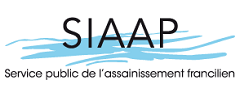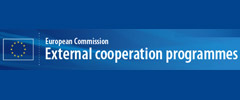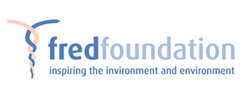Sanitation and Gender Are Core Issues of the Nexus Approach
WECF contributed to the conference “The Water Energy and Food Security Nexus – Solutions for the Green Economy” held 16 to 18 November 2011 in Bonn
06.12.2011 |Sascha Gabizon

Anara Choitonboeva, WECF partner from Kyrgyzstan, being interviewed by Deutsche Welle Radio at the Bonn Nexus Conference
Sascha Gabizon, executive director of WECF welcomed the conference: ”Facing today´s global challenges, the nexus approach is very much needed, start thinking out of the sectors. The women´s traditional role has always been to think in a holistic way to make the family´s and community´s life sustainable.”
WECF contributed to the NGO stakeholder forum through leading the thematic table “Sanitation and the Nexus” of the Nexus cafe. Anara Choitonboeva from the Kyrgyz Alliance for Water and Sanitation presented the case study Kyrgyzstan on a second thematic table. Claudia Wendland, coordinator sanitation projects at WECF, highlighted that the provision of sustainable sanitation leads to improvements in the water, energy and food security sector by saving and protecting drinking water, ensuring public health and providing organic fertiliser (urine and faecal matter).
After the active discussions in the Nexus cafe, the following recommendations were drawn as input to the final conference outcome:
More political priority, public awareness and investment focus on sanitation, because it is a basic prerequisite for food security, water protection and (rural) energy supply – and in particular is a source of locally produced, low cost, organic fertilizer in particular for subsistence farmers, which are in majority women. The future of agriculture and food security must be based on the safe re-use of wastewater, animal and human excreta, allowing for climate resilience and local economic value chains. Sanitation is the most important pre-requisite for health, and benefits in particular women and children.
WECF as part of the German WASH network was convener - together with UNSGAB and RUAF - of the hot topic session “No Food and Nutrition Security without Water, Sanitation and Hygiene”. Uschi Eid, co-chair of UNSGAB, welcomed this session as maybe the most important thematic aspect of the conference.
Sascha Gabizon reported back from the roundtable on business incentives for the nexus, noting that a first important step to take is to reduce the costs of sanitation systems, for example by using less water and energy – dry urine diverting toilets are a good example. Furthermore, it was noted that sanitation is not easily made into a commercial activity, especially not if sanitation is done in a responsible way, e.g. not polluting one’s neighbours garden (and groundwater sources). But already numerous entrepreneurial activities exist. The best known is the kiosk where people buy drinks at the bus stop but also use the toilet against a small payment. But also the urban food garden, where the bio-waste mixed with sanitation waste, produced biogas for the kitchen of a local foodstall or restaurant. Separating the useful waste – the nutrients – from the harmful waste ¬– the bacteria or the toxins – is an important principle. The service sector is another key area, maintenance of sanitation systems, where women entrepreneurs have also good opportunities. One of the future areas of entrepreneurship is soil improvement, as globally loss of fertile soil is a major threat. Nutrients from sanitation waste are excellent for production of high quality soil such as ‘terra preta’ which allow several harvests in areas where previously this was not possible.

Shanta Sheela Nahir, former minister of water of India, and currently in the planning board of Tamil Nadu pointed out : “The base for all nexus issues is to insure that sanitation becomes sustainable.”
Five recommendations to improve WASH and consequently water, energy and food security were discussed in detail with more than 60 conference participants and were fed into the final recommendations of the conference.
Animated slides about WASH (Water Sanitation Hygiene)
During the plenary session dialogue on the last day of the conference, with the ‘Ambassadors for nexus’, a number of interventions were given by members of the women’s major group, e.g. Nozipho Wright of ENERGIA Botswana gave examples of women as managers of local energy and food systems. Monique Essed, board member of WEDO from Suriname recalled the key role women had played in Rio in 1992, and from there to Beijing and to Johannesburg. Sascha Gabizon reflected that in particular members of the Women’s major group from Africa were concerned about ‘Landgrab’ and the negative impact on women, and that landgrab was often connected to corporate investments in industrial biofuel production, which needed areas with sufficient water – the energy-water nexus. She also asked about the need for legally binding instruments in addition to the many good initiatives presented at the conference on for example global environmental reporting including spacial mapping “eye on earth” (EEA).
In the closing session Shanta Sheila Nair spoke on the role of sanitation in the nexus, and reflected on the problems of current economic development. She noted that her country was “mad about GDP growth”, but that where she comes from there is a saying “when something gets better – everything else gets worse!” In the previous presentation by EEA it was mentioned that up to 80% of food is wasted between the field and the fork, and that we need taxes and fiscal measures, - to use the pricing,- for a green economy. “Indeed, what about the subsidies for the food we are all eating, we would not be wasting that much of food, if it had been priced right. We are subsidising the food of rich countries and say to the poor, you need to cope yourself without subsidies”, she concluded.
Please see underlying session paper here
Information about the German WASH network here
Official Conference Website
Related News
Meet the Winners of the Gender Just Climate Solutions Award at COP24
On the 70th anniversary of the Universal Declaration of Human Rights, we awarded Gender Just Climate Solutions Winners at the climate negotiations in Katowice, Poland
11.12.2018
Invitation: Gender Just Climate Solutions Award 2018
10 December, COP24 Katowice
04.12.2018
Getting to the Future We Want
4-7 November, Brussels: European Environmental Bureau’s (EEB) Annual Conference
12.11.2018
GoodFood4All
WECF and partners all over Europe start GoodFood4All Campaign
06.11.2018
#Ruralwomen: join our Women2030 campaign!
15.10.2018






































